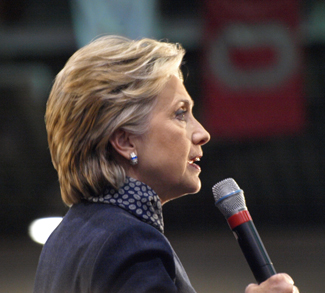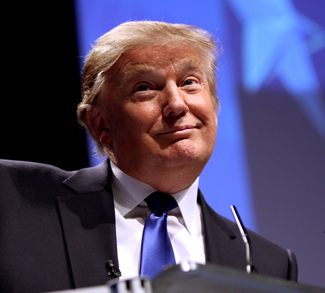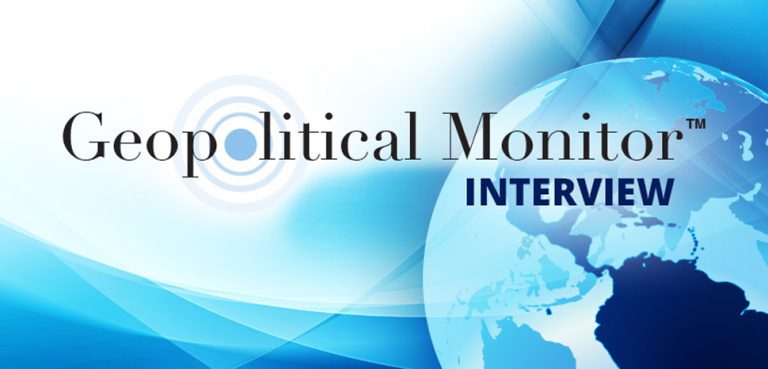Italy has often been considered a political laboratory, a place for experimenting with radical ideas, which then take on more radical transformations elsewhere. The concepts of a ‘republic,’ senators, and representatives of the people started in Rome, as did political factions – or parties – and the very idea of the Law. Fascism is also an Italian experiment, which spread to Spain, Portugal, and parts of Latin America (and also entered North America later…), morphing into Nazism in Germany.
Donald Trump, too, is not a totally new phenomenon. Italy has already experienced its own version of Trump in the form of Silvio Berlusconi, a media and entertainment tycoon claiming to have all the answers and able to use an undisputable charisma to win. Nobody should be surprised when the Berlusconi experiment is repeated and magnified when Trump wins the Republican nomination. There’s even a good chance of hitting a home run and scoring the White House: President ‘Donalvio Berlustrump.’
Indeed, Donald Trump, the phenomenon, is growing daily and reaching huge proportions. He is by far the most popular candidate in the polls for the Republican nomination. In a poll from August 27, Trump enjoyed 28% support with second place Ben Carson far behind at 12%. The others, including Jeb Bush, Ted Cruz, and Marco Rubio are hardly making a dent with 7% each. For the traditional and socially conservative Republicans, Trump represents a spectacle that they have no idea how to stop, let alone destroy. As if to mock his rivals, most of whom are rolling over each other to show off their Christian credentials, Trump recently said his favorite book is The Bible – why it’s even better than his own “Art of the Deal.” Trump may be the antidote or the natural evolution of the Tea Party, but what is certain is that his appeal is growing. The more traditional Republicans attack him, the more voters become convinced that he is the only one challenging the establishment.
He also brings a new kind of populism, based on far-right anti-immigrant fodder, while also championing such left-wing staples as increasing taxes on the rich and hedge funds. In fact, rather than the assumed result that Trump would allow Hillary Clinton to easily win, the latter is actually dropping in the polls. In Europe, and specifically in Italy, the comparisons between Trump’s political rise with that of Berlusconi in 1994 are readily apparent, except that Trump’s presidential race has been even more remarkable. Berlusconi had three national TV channels – at a time when people had no distractions such as the Internet or Netflix – and a Champion’s League winning soccer team at his disposal to build his political brand. Trump is a TV personality but does not own TV channels. Once in power, Berlusconi continued to use his media empire to dominate political discourse, while in the United States there are laws to avoid such conflict of interest.
Yet there are similarities between the two that go beyond a shared background in real estate and mastery of bombastic self-promotion while oversimplifying issues. Like Berlusconi, Trump is a consummate showman and he is delivering a performance where the protagonist can say absolutely anything without raising a single eyebrow in the audience. The rise of Trump, like Berlusconi’s in his heyday, is a symptom of hatred towards professionalism in politics, which has been building up in the United States. The lesson that Italy can teach America is that voters should take Trump seriously, especially those voters who do not wish to see him move to 1600 Pennsylvania Avenue in 2017. Americans are actually noticing that The Donald is no longer momentary phenomenon and that he is a real competitor for the White House. He presents a perplexing image, ‘overcombed’ hair and all – incidentally hair has been a major obsession of Berlusconi, though in his case the issue was baldness, therefore more George Costanza than Trump. His Republican party colleagues, before their first debate in early August, called him a Rodeo Clown because they consider his campaign as a kind of circus: loud, rude and ignorant. But now they are competing with him directly and he will dictate the scope and tone of the issues. While Berlusconi used the image of strength, as did Mussolini in the 1920s and 30s, which appeals to average Italians, especially when cloaked in soccer metaphors, Trump’s image appeals in the same way as one of those movies that the average American enjoys, featuring an underdog who breaks the elite establishment, like Rodney Dangerfield in ‘Back to School, where a brash millionaire takes over an elite northeastern US college. Also like Berlusconi, Trump is devoid of serious content. One simply has to consider how Trump deconstructed the Iran deal, citing inaccurate details about Iranian ‘self-controls’ of nuclear sites, to understand what voters want to hear.
Ahead in the polls, Trump’s trash talk gaffes are propelling his campaign. He has managed to gain points even after refusing to apologize for insulting Fox News debate moderator Megyn Kelly, insinuating she was menstruating, when her questions became too pointy. He dismissed concerns countering that “she should be apologizing to me!” The infamous comment was that Megyn Kelly had “blood coming out of her wherever” as she questioned him during the Republican debate. Usually, Americans are sensitive to such issues, but Donald Trump has had the cunning to dominate the political show, becoming its protagonist, and one, who like Berlusconi, could get away with anything and everything. His comments against Megyn Kelly may have stirred his political opponents and a small part of public opinion, but have not made a single dent in his base of support. The fact is that the rise of tycoon shows a profound change in the social fabric of the United States. Indeed, the parallel is with Italy, where showbiz or circus politics have dominated the scene for over twenty years, starting with Berlusconi, a billionaire who started his career singing on cruise ships and who made a fortune in the shadows. But the phenomenon has since spread to other parts of the democratic world.
In Mexico, Trump would face quite a challenger in the form of television comedian Victor Trujillo, who has become his country’s most influential political commentator. While the leader of the extreme right in the Netherlands, Geert Wilders, has a past as a punk rocker. All these characters have made “populism” and the hatred of the political elite – and therefore traditional politics – their calling cards. The phenomenon, more specifically is a rejection or even a revolt against political professionalism while the new prospective leaders channel their lack of it by railing supporters against migrants. The new populism may not be a bad phenomenon; it might even be considered a medicine that the traditional politicians must swallow, having taken advantage of voters for too long and distanced themselves from the reality of everyday people. But if these ‘classical’ politicians don’t wake up soon and start to consider the needs of their voters rather than their lobbies, they might end up compromising the very integrity of democracy.
The opinions, beliefs, and viewpoints expressed by the authors are theirs alone and don’t reflect any official position of Geopoliticalmonitor.com.




